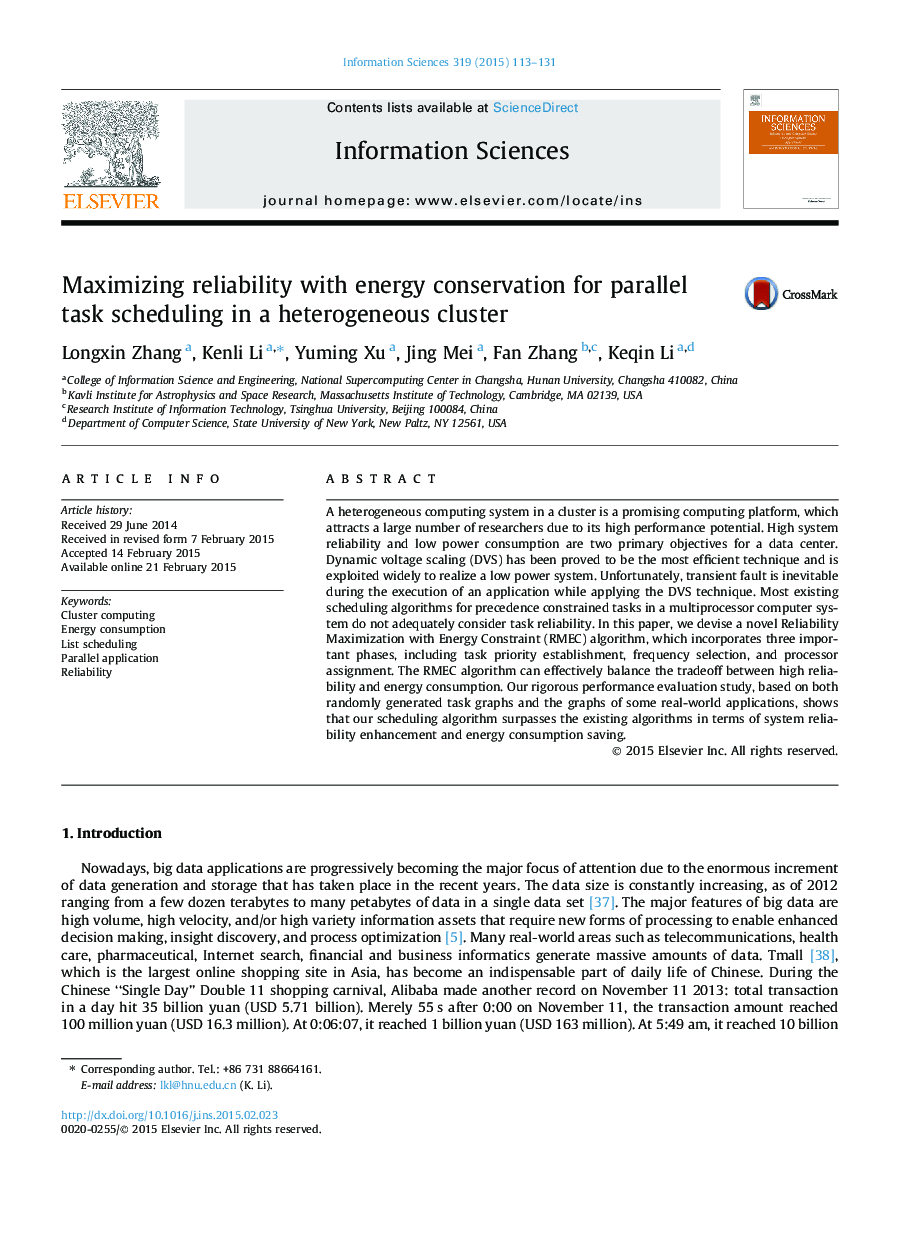| Article ID | Journal | Published Year | Pages | File Type |
|---|---|---|---|---|
| 392987 | Information Sciences | 2015 | 19 Pages |
A heterogeneous computing system in a cluster is a promising computing platform, which attracts a large number of researchers due to its high performance potential. High system reliability and low power consumption are two primary objectives for a data center. Dynamic voltage scaling (DVS) has been proved to be the most efficient technique and is exploited widely to realize a low power system. Unfortunately, transient fault is inevitable during the execution of an application while applying the DVS technique. Most existing scheduling algorithms for precedence constrained tasks in a multiprocessor computer system do not adequately consider task reliability. In this paper, we devise a novel Reliability Maximization with Energy Constraint (RMEC) algorithm, which incorporates three important phases, including task priority establishment, frequency selection, and processor assignment. The RMEC algorithm can effectively balance the tradeoff between high reliability and energy consumption. Our rigorous performance evaluation study, based on both randomly generated task graphs and the graphs of some real-world applications, shows that our scheduling algorithm surpasses the existing algorithms in terms of system reliability enhancement and energy consumption saving.
